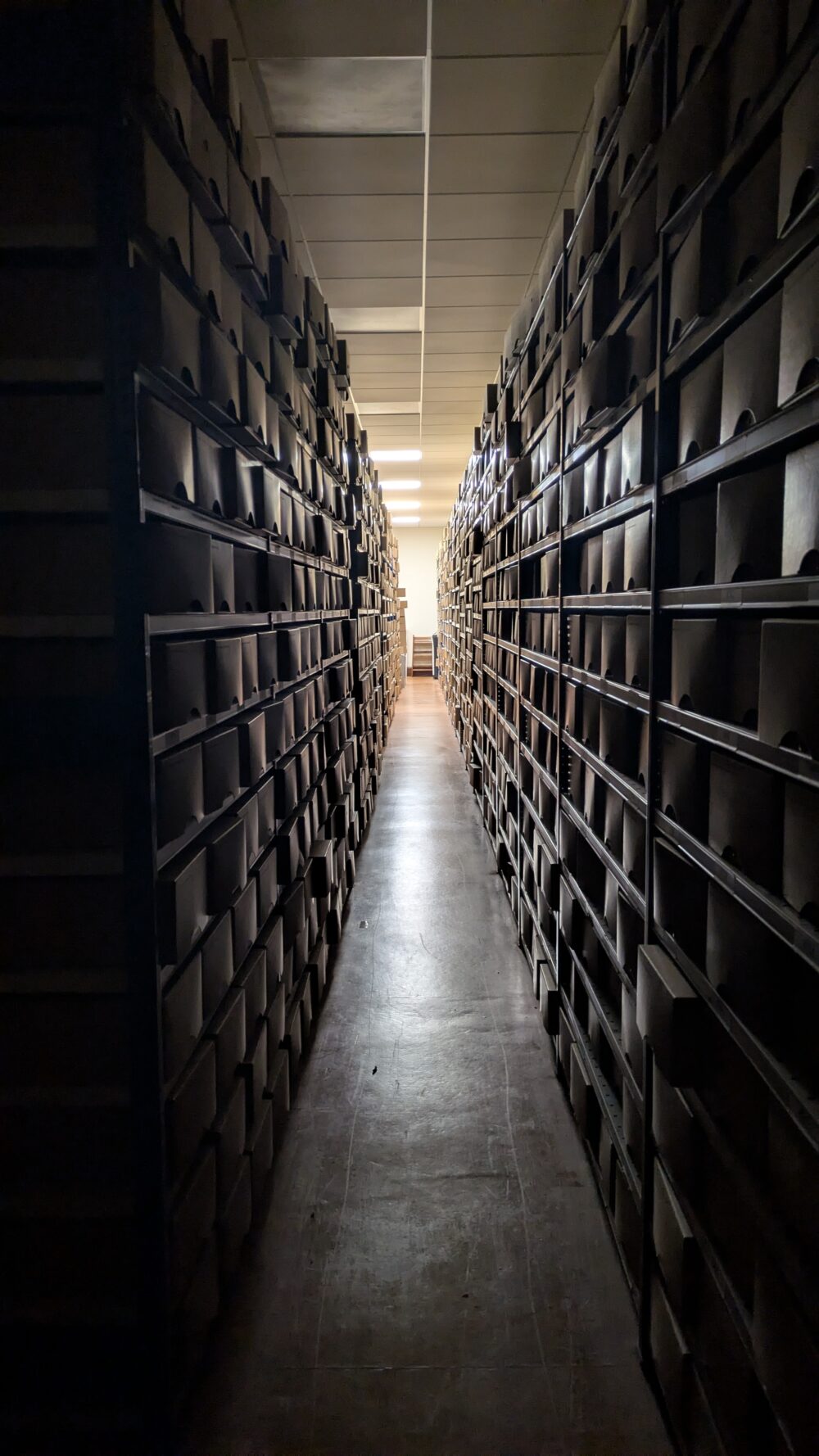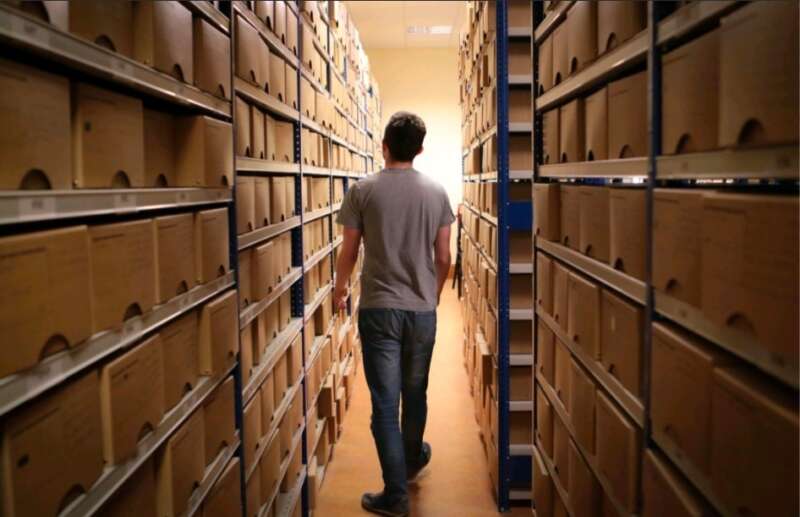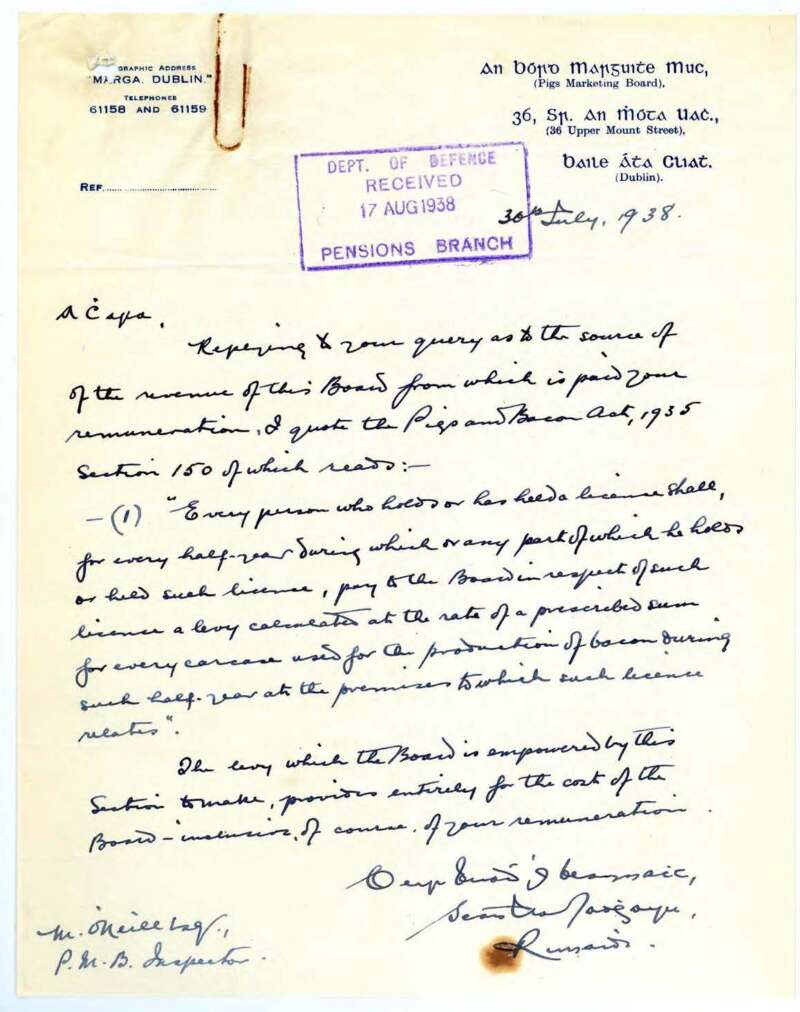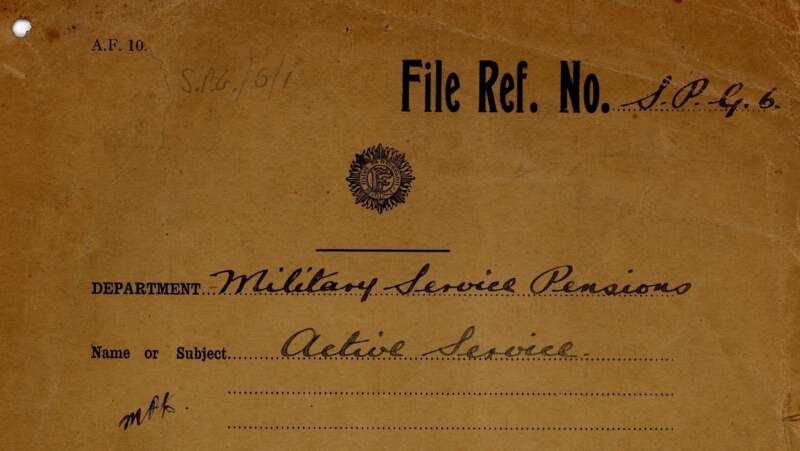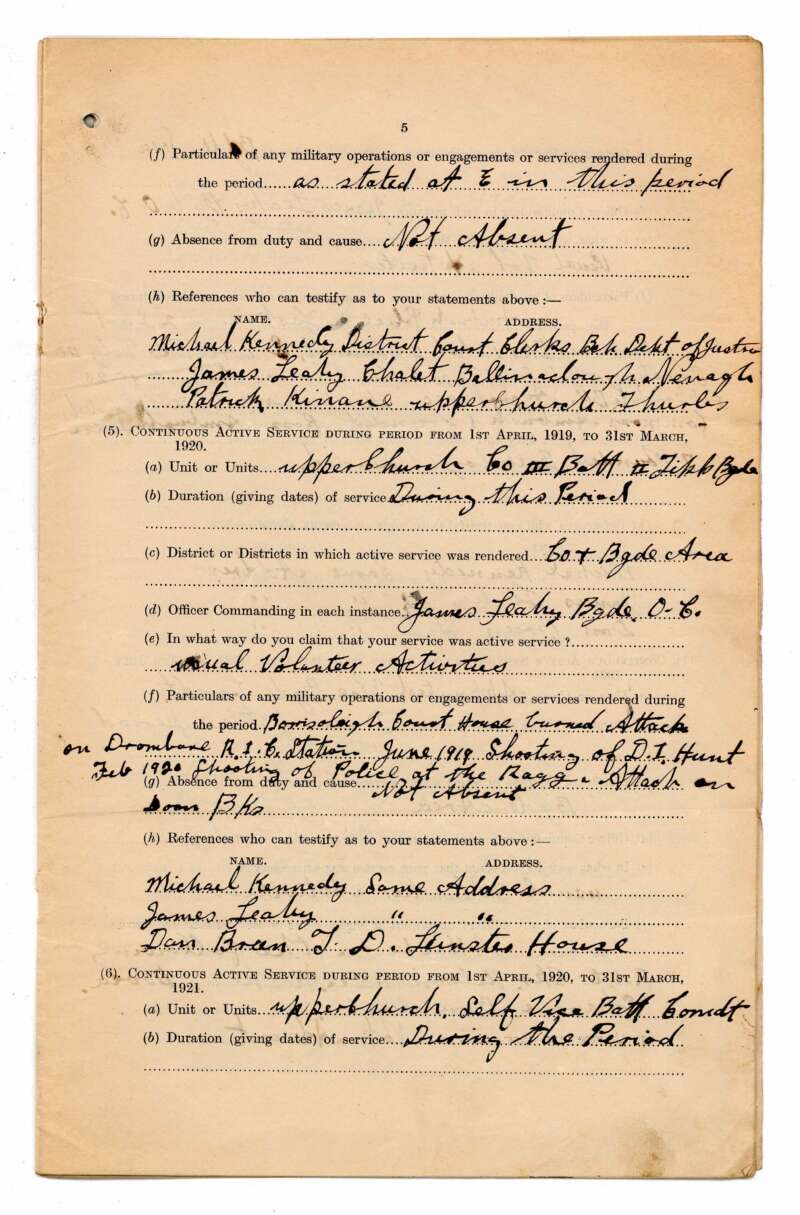A Unique Project: Objectives and Commitments
Project Mandate
The core mandate of the MSPC Project encompasses two primary objectives:
- To establish a sustainable, long-term preservation programme for the physical and digital records.
- To facilitate equitable public access to the collection.
Access and preservation are inherently interdependent. The imperative for long-term preservation supports continued public access, while the demand for access provides a compelling justification for investment in sustainable archival practices.
The project is deeply community-focused, striving to ensure that access to these records is equitable, inclusive, and meaningful for diverse audiences: researchers, descendants, and the general public alike.
The Military Service (1916–1923) Pensions Archive (MSPA) comprises approximately 250,000 to 280,000 files documenting claims related to injury, disability, military service, and dependency made by over 80,000 individuals who participated in the Irish independence movement, as well as by their dependents. This extensive body of material was generated organically through the administration of successive legislative measures intended to recognise and compensate veterans of the revolutionary period.
The MSPA offers unparalleled insight into the political, social, and personal dimensions of the Irish Revolution and its aftermath. Far beyond a bureaucratic record, the archive illuminates the lived experiences of individuals who engaged in the struggle for independence, capturing their post-conflict interactions with the emerging Irish state.
Since its initial public release in 2014, the collection has fundamentally reshaped historiographical approaches to Ireland’s twentieth-century history. In revealing not only new factual data but also deep personal and collective experiences, it has opened new avenues of inquiry and interpretation, moving beyond the traditional focus on military and political elites to foreground everyday actors and their communities.
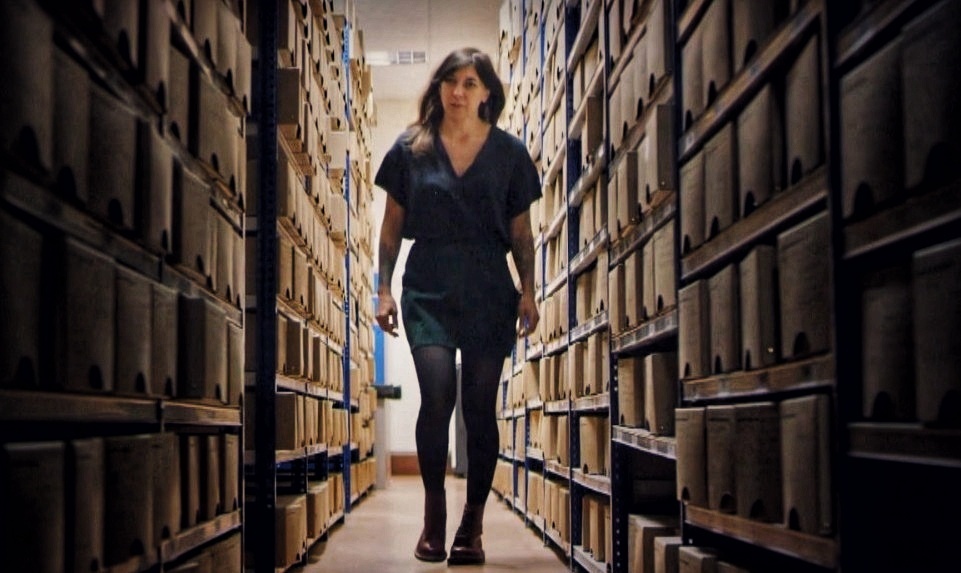
What is so unique about the Archive?
The MSPA is both locally grounded and globally relevant in scope. The files contain dense and layered information, enabling researchers to uncover granular biographical detail while also drawing broader conclusions about Irish society, state formation, and memory.
Three particularly significant features of the collection include:
- Posthumous Representation
Many deceased revolutionaries are represented in the archive through pension claims made by their surviving dependents. These applications often contain in-depth investigations into family circumstances, financial status, living conditions, and include Garda Síochána reports, offering rich socio-economic data rarely found in official records. - Longitudinal State Interaction
As pension files remained open for the duration of payments, some span from the 1920s through to the 1980s, 1990s, or even into the early 2000s. This extended timeframe offers an exceptional longitudinal perspective on individuals’ interactions with the state, shedding light on the evolution of Ireland’s welfare infrastructure from its inception. - Broad Social Representation
In contrast to many commemorative sources that prioritise prominent figures, the MSPC includes voices from across the social spectrum. It foregrounds rank-and-file participants (both men and women) whose contributions have often been marginalised in dominant narratives. The completion in November 2023 of the full cataloguing of women’s service-related claims (approximately 6,000 in total) marks a major milestone in enhancing their visibility within the historical record.
The archive and the way it is being catalogued, facilitate a distinctive bottom-up approach to the study of the Irish Revolution, allowing researchers to move between the very local to the global analysis. Each pension file is a multi-layered resource, capable of revealing personal details as well as broader historical patterns.
An individual’s case may consist of two to four files (or more) often reflecting both personal and familial involvement in the independence movement. These records document not only military or political activity but also the domestic sphere, revealing entire households engaged in the revolutionary effort. Furthermore, organisational affiliations and extensive networks of contacts are mapped across the collection, creating an interlinked narrative far exceeding any single file.
Beyond the Violence: Archives of the Aftermath and the Afterlife
Traditional historiography has often privileged the study of direct violence, overlooking its broader consequences. The MSPC enables a vital recalibration. It offers insight into the emotional, psychological, and material aftereffects of conflict: disillusionment, trauma, strained family dynamics, financial insecurity, and protracted negotiation with the state. Pension files thus stand not merely as administrative records, but as testimonies to lives shaped, and sometimes distorted, by revolutionary struggle and its legacy.
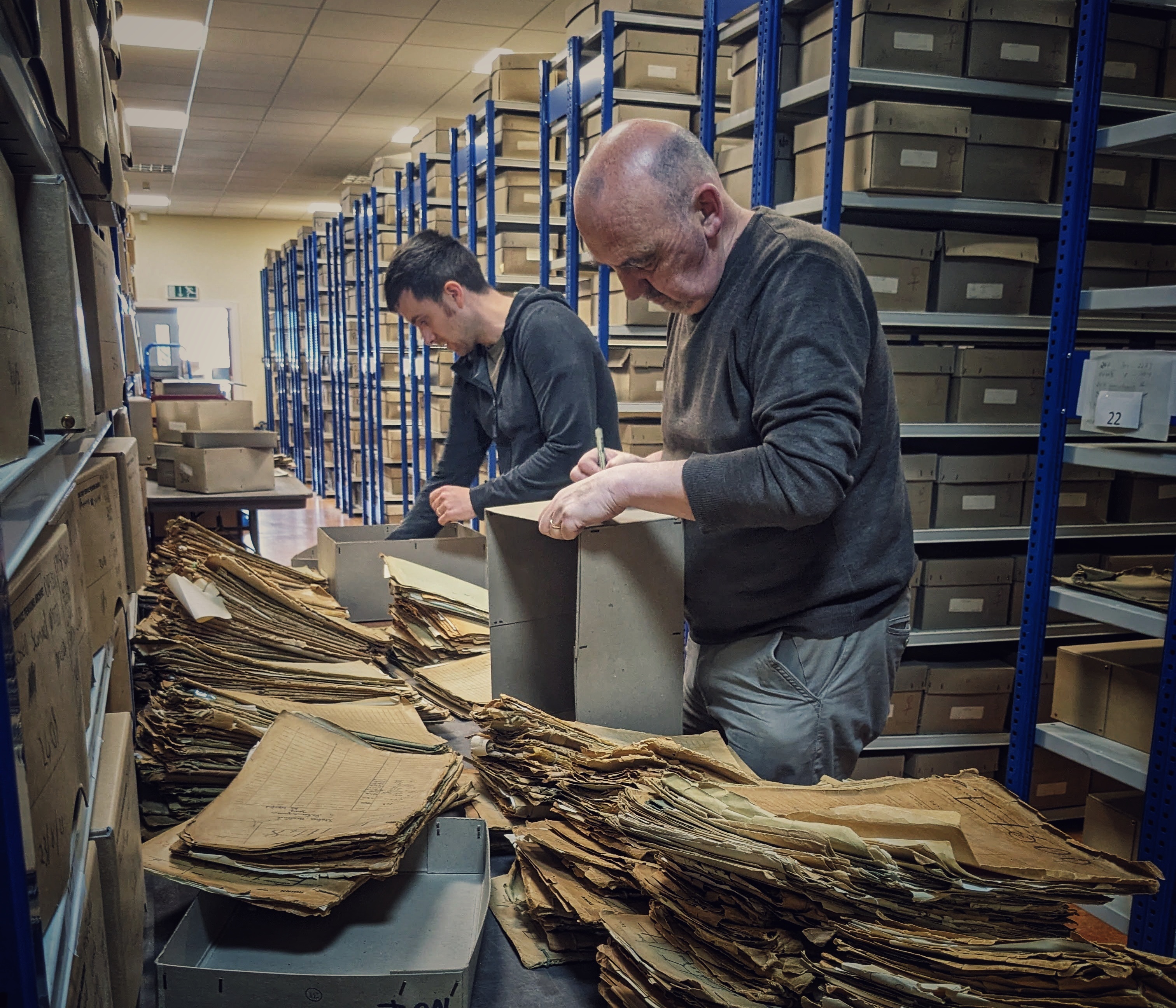
Mission Statement: Sustainability and Responsibility
The MSPC team is committed to archival practices that are environmentally responsible, economically sustainable, and socially equitable. This holistic approach to sustainability supports both the physical conservation of archival material and the ethical stewardship of cultural heritage for future generations.
The project addresses not only traditional archival concerns, such as conservation and metadata, but also broader institutional practices including energy consumption, waste management, and the environmental impact of digital infrastructure. In doing so, it aligns the preservation of historical records with contemporary values of environmental and social responsibility.
Key Sustainable Preservation Practices
- Physical Preservation and Conservation: Cleaning and removal of corrosive metal fasteners and ties; Establishment of an in-house conservation laboratory; Rehousing materials in acid-free, lignin-free folders and boxes.
- Space and Resource Management: Implementation of space-saving measures (e.g., secure destruction of non-archival duplicates); Regular audits of digital and physical holdings to reduce unnecessary duplication; Regular surveys to monitor archival conditions.
- Environmental Stewardship: Monitoring and reduction of waste generation; Use of sustainable materials and energy-efficient infrastructure; Commitment to recycling and environmentally conscious disposal methods.

